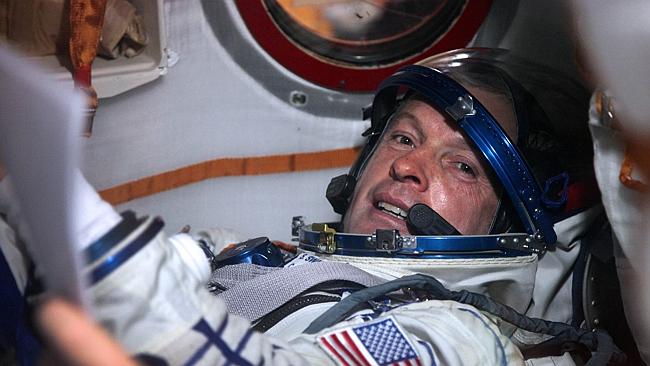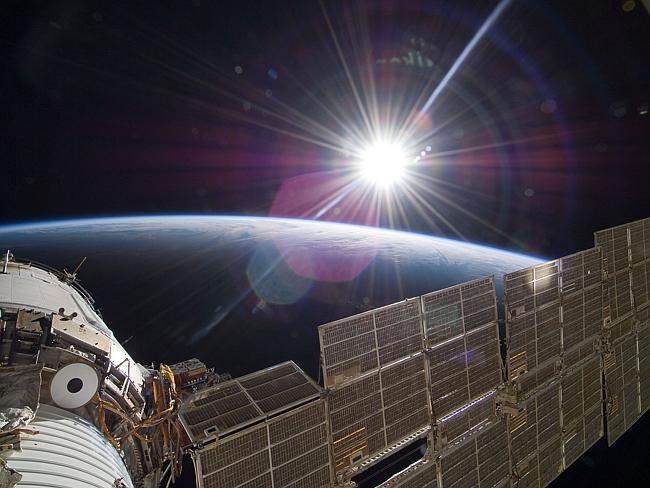NASA cuts ties with its Russian counterpart over Ukraine tensions
NASA has cut ties with its Russian counterpart — but experts warn ‘divorce is not an option’ when it comes to the International Space Station.

NASA has severed ties with its Russian counterpart over tensions in Ukraine.
News website The Verge published excerpts from an internal memo about the move.
The published excerpt stated: “Given Russia’s ongoing violation of Ukraine’s sovereignty and territorial integrity, until further notice, the US Government has determined that all NASA contacts with Russian Government representatives are suspended, unless the activity has been specifically excepted. This suspension includes NASA travel to Russia and visits by Russian Government representatives to NASA facilities, bilateral meetings, email, and teleconferences or videoconferences. At the present time, only operational International Space Station activities have been excepted. In addition, multilateral meetings held outside of Russia that may include Russian participation are not precluded under the present guidance.”

UKRAINE: Crimea loss ‘a tragedy’ says Yanukovych
NATO: What Russian troop rollback?
Since the retirement of the space shuttle, NASA has depended on Russia to hitch rides to the ISS. The United States pays Russia an average of $US70.7 million per seat.
The direction applied to “all NASA centers (sic)’’ and was ordered by Michael O’Brien, NASA’s associate administrator for International and Interagency Relations.
NASA Administrator Charles Bolden told lawmakers on March 27 that he was aware of no threat that would jeopardise the Russian-US partnership at the space station.
Earlier on Wednesday, NATO warned that Russia’s military presence on the flashpoint border — estimated at about 40,000 troops — with Ukraine was of “grave concern”.
On Tuesday, NATO announced the alliance was suspending all practical cooperation with Russia, military and civilian, and that there was no confirmation that Russian troops were pulling back from the border.
After the memo leaked, NASA confirmed it was suspending most contact with Russia. But it also took a swipe at Congress, noting that it wouldn’t be relying on Russia to fly to the space station if funding hadn’t been cut.

The space agency said it is looking at private rocket companies to ferry astronauts in 2017.
Space policy experts said they’re not surprised with the latest guideline because similar memos suspending Russian contact went out to other federal agencies.
Scott Pace, space policy director at George Washington University, said it was noteworthy that the cooperation on the space station remains intact.
“We and the Russians have a very deep and integrated relationship. We are reliant on them as they are on us,’’ he said. “Divorce is not an option.’’
Pace said there likely will be disruptions for NASA scientists who trade data or work on experiments with Russian researchers.
The contact ban only applies to direct communication between NASA and the Russian space agency, Roscosmos. It doesn’t include meetings attended by Russia and other countries.
“I don’t think it’s a big deal,’’ said John Logsdon, professor emeritus of political science and international affairs at George Washington.
Had NASA cut off access to the space station, “it would be the end’’ of the International Space Station, he said.



